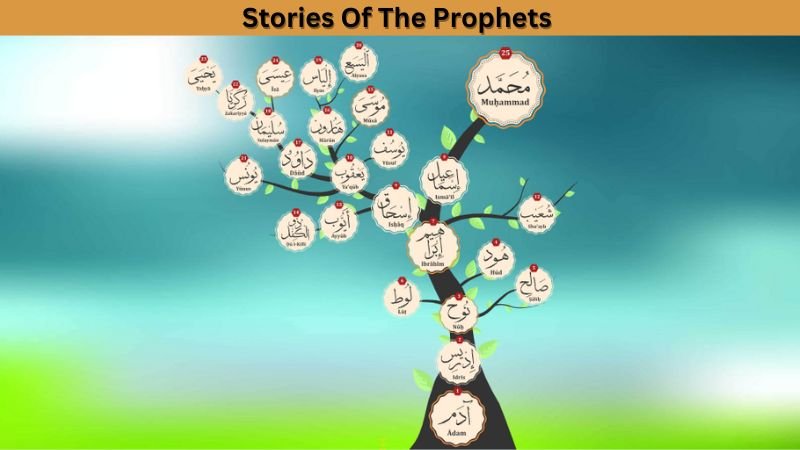
The stories of the prophets hold a special place in Islamic tradition. They are not merely historical accounts but timeless lessons, providing guidance, wisdom, and inspiration for all who seek to understand their Creator and live a righteous life. On this page “Prophet Stories”, we aim to delve into the lives of the prophets mentioned in the Qur’an, uncovering the profound messages they carry for humanity.
The Role of Prophets in Islam
Prophets in Islam are revered as the best of humanity, chosen by Allah to guide their people out of darkness and into the light of monotheism. The Qur’an states, “And We certainly sent into every nation a messenger, [saying], ‘Worship Allah and avoid Taghut (false gods)’” (Surah An-Nahl, 16:36). From Adam, the first prophet, to Muhammad (peace be upon them all), the final messenger, each prophet was sent with the same core message: the oneness of Allah (Tawheed) and the call to worship Him alone.
The Purpose of Prophet Stories
The stories of the prophets serve multiple purposes. First and foremost, they remind us of Allah’s mercy and justice. They show how Allah, out of His infinite wisdom, sent messengers to guide humanity at different times and places. The Qur’an emphasizes, “And We have already sent messengers before you among the sects of the former peoples. And no messenger would come to them except that they ridiculed him” (Surah Al-Hijr, 15:10-11). Despite facing ridicule, rejection, and hardship, the prophets remained steadfast in their mission, setting an example for believers to follow.
Another purpose of these stories is to teach us valuable lessons about faith, patience, perseverance, and reliance on Allah. For instance, the story of Prophet Ibrahim (Abraham) highlights his unwavering faith when he was thrown into the fire by his people for refusing to worship idols. The Qur’an recounts this moment, saying, “They said, ‘Burn him and support your gods—if you are to act.’ Allah said, ‘O fire, be coolness and safety upon Ibrahim’” (Surah Al-Anbiya, 21:68-69).
Prophets as Role Models
Each prophet is a role model, embodying the highest moral and ethical standards. The Qur’an repeatedly tells us to follow the example of the prophets, particularly Prophet Muhammad (peace be upon him), described as “a mercy to the worlds” (Surah Al-Anbiya, 21:107). The life of Prophet Muhammad is filled with lessons on compassion, justice, and humility. His treatment of the poor, his concern for the weak, and his forgiveness of enemies are but a few examples of his exemplary character.
The story of Prophet Yusuf (Joseph) is another powerful narrative of patience and forgiveness. Despite being betrayed by his brothers and wrongfully imprisoned, Yusuf remained patient, eventually rising to a position of power and forgiving those who wronged him. The Qur’an narrates his words: “No blame will there be upon you today. Allah will forgive you; and He is the most merciful of the merciful” (Surah Yusuf, 12:92). This story teaches us the importance of patience, trust in Allah’s plan, and the power of forgiveness.
Why Study the Stories of the Prophets?
Studying the stories of the prophets allows us to connect with our faith on a deeper level. These stories are not mere folklore; they are divine narratives meant to guide us through life’s challenges. They offer solutions to contemporary issues by providing timeless wisdom. The Qur’an says, “There was certainly in their stories a lesson for those of understanding. Never was it [the Qur’an] a narration invented, but a confirmation of what was before it and a detailed explanation of all things and guidance and mercy for a people who believe” (Surah Yusuf, 12:111).
In addition to offering spiritual and moral guidance, these stories strengthen our connection to the Qur’an itself. By reflecting on the lives of the prophets, we gain a deeper understanding of the divine message, appreciate the trials and sacrifices of these noblemen, and renew our commitment to following the path they paved for us.
Conclusion
The “Prophet Stories” page on our website IslamoQuran.com is more than just a collection of stories; it is a journey through the lives of the most revered individuals in Islamic history. These stories offer lessons, inspire faith, and provide guidance that is as relevant today as it was thousands of years ago. We invite you to explore these timeless tales, reflect on their meanings, and apply their lessons in your daily life. By doing so, you will not only gain a deeper understanding of your faith but also strengthen your connection with the Qur’an and the Creator.